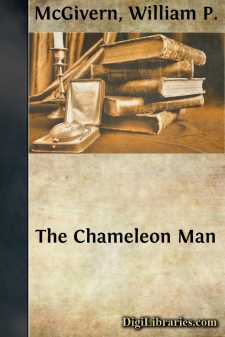Fiction
- Action & Adventure 180
- Biographical 15
- Christian 59
- Classics
- Coming of Age 5
- Contemporary Women 3
- Erotica 8
- Espionage/Intrigue 12
- Fairy Tales, Folklore & Mythology 236
- Family Life 169
- Fantasy 117
- Gay 1
- General 596
- Ghost 32
- Historical 808
- Horror 43
- Humorous 159
- Jewish 25
- Legal 4
- Medical 22
- Mystery & Detective 315
- Political 49
- Psychological 41
- Religious 64
- Romance 158
- Sagas 11
- Science Fiction 730
- Sea Stories 113
- Short Stories (single author) 537
- Sports 10
- Suspense 1
- Technological 8
- Thrillers 2
- Urban Life 31
- Visionary & Metaphysical 1
- War & Military 173
- Westerns 199
Classics Books
Sort by:
by:
James Parkerson
ADMONITIONSto theDISSIPATED. Excess to mankind oft’times brings,Remorse with all its bitter stings;When cares oppress us in this life.At times we drink to banish strife;But when its feeble aid is o’er,We are more wretched then before.Oft poverty the man disgrace,And shows a drunkard in his face;Suppose he is a man of wealth,Excess of liquor injures health;Not only health but sad to name,Such...
more...
by:
Daniel Hack Tuke
CHAPTER I.MEDICAL AND SUPERSTITIOUS TREATMENT OF THE INSANE IN THE OLDEN TIME. Among our Saxon ancestors the treatment of the insane was a curious compound of pharmacy, superstition, and castigation. Demoniacal possession was fully believed to be the frequent cause of insanity, and, as is well known, exorcism was practised by the Church as a recognized ordinance. We meet with some interesting...
more...
by:
Edmond Rostand
ACT I THE EVENING OF THE PHEASANT-HEN A farmyard such as the sounds from behind the curtain have described. At the right, a house over-clambered with wistaria. At the left, the farmyard gate, letting on to the road. A dog-kennel. At the back, a low wall, beyond which distant country landscape. The details of the setting define themselves in the course of the act. SCENE FIRST The whole barnyard company,...
more...
by:
Henry Wood
CHAPTER I. THE INKED SURPLICE. The sweet bells of Helstonleigh Cathedral were ringing out in the summer's afternoon. Groups of people lined the streets, in greater number than the ordinary business of the day would have brought forth; some pacing with idle steps, some halting to talk with one another, some looking in silence towards a certain point, as far as the eye could reach; all waiting in...
more...
by:
Robert Chambers
THE MANAGING PARTNER. She is neither your partner, nor ours, nor anybody else's in particular. She is in general business, of which matrimony is only a department. How she came to be concerned in so many concerns, is a mystery of nature, like the origin of the Poet—or rather of black Topsy. The latter, you know, was not born at all, she never had no father nor mother, she was not made by...
more...
by:
Robert Chambers
THE SLAVER. On the 18th day of February 1850, Her Majesty's steamship Rattler was lying at anchor about twenty miles to the northward of Ambriz, a slave depôt situated on the western coast of Africa. Week after week had passed away in dull uniformity; while the oppressive heat, the gentle breeze which scarcely ruffled the surface of the deep, and the lazy motion of the vessel as it rolled on...
more...
I've got an office in the Daily Standard building and sometimes when things are slow in my line—theatrical bookings—I drift upstairs and talk to the guy who writes the column, The Soldier's Friend, for the Standard. On this particular morning I walked into his office and found it empty so I sat down and waited, figuring he was downstairs getting a mug of coffee. After I cleaned my nails...
more...
by:
Robert Chambers
I have been all my life a sort of amphibious animal, having, like many an old Roman, learned to swim long before I had learned to read. The bounding backs of the billows were my only rocking-horse when I was a child, and dearly I loved to ride them when a fresh breeze was blowing. I rarely tired in the water, where I often amused myself for hours together. I grew up with such a liking for the exercise,...
more...
by:
Robert Chambers
A GLANCE AT CONTINENTAL RAILWAYS. When lately making a pretty extensive continental excursion, we were in no small degree gratified with the progress made in the construction and operation of railways. These railways, from all that could be seen, were doing much to improve the countries traversed, and extend a knowledge of English comforts; for it must always be borne in mind that the railway...
more...
by:
Robert Chambers
It is wonderfully exciting to read the adventures of a shipwrecked mariner; to find him cast away on a desert island, destitute of everything that before seemed necessary to his very existence; to see him settling himself down in a strange and untried form of life, substituting one thing for another, doing altogether without some other thing, turning constantly from expedient to expedient, bending to...
more...











